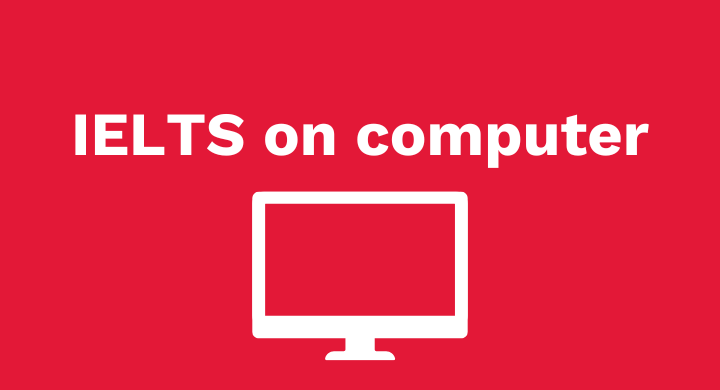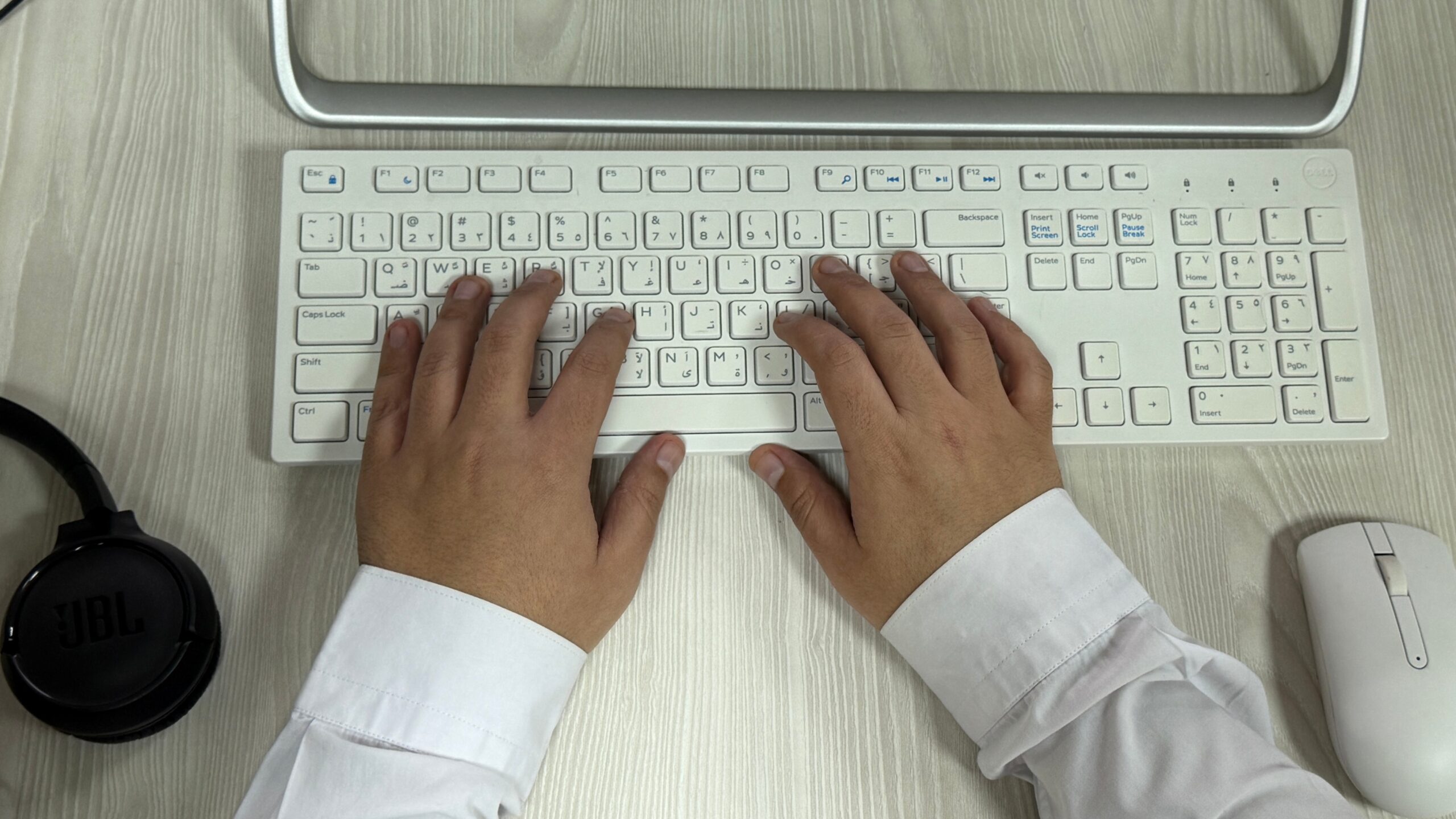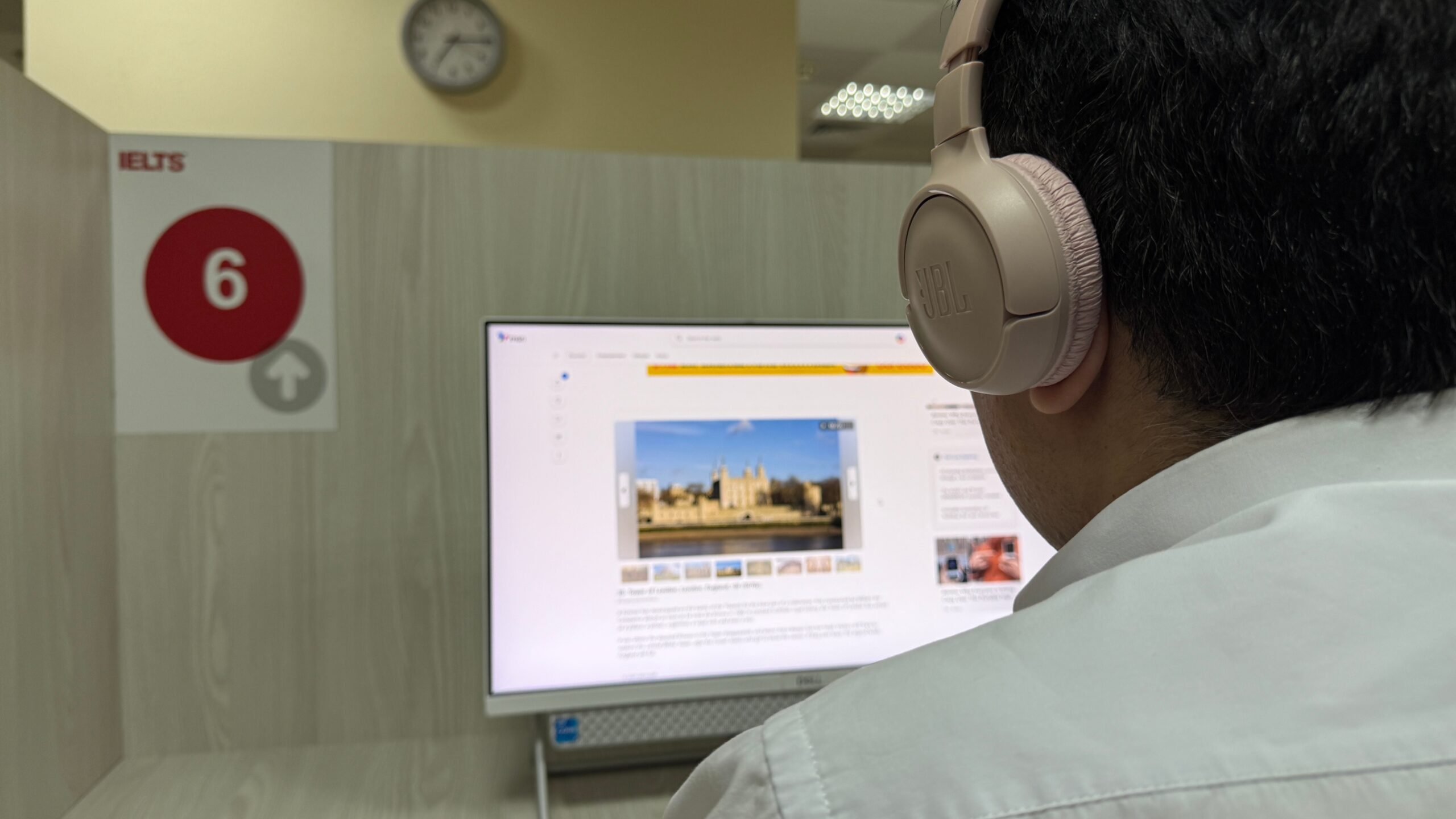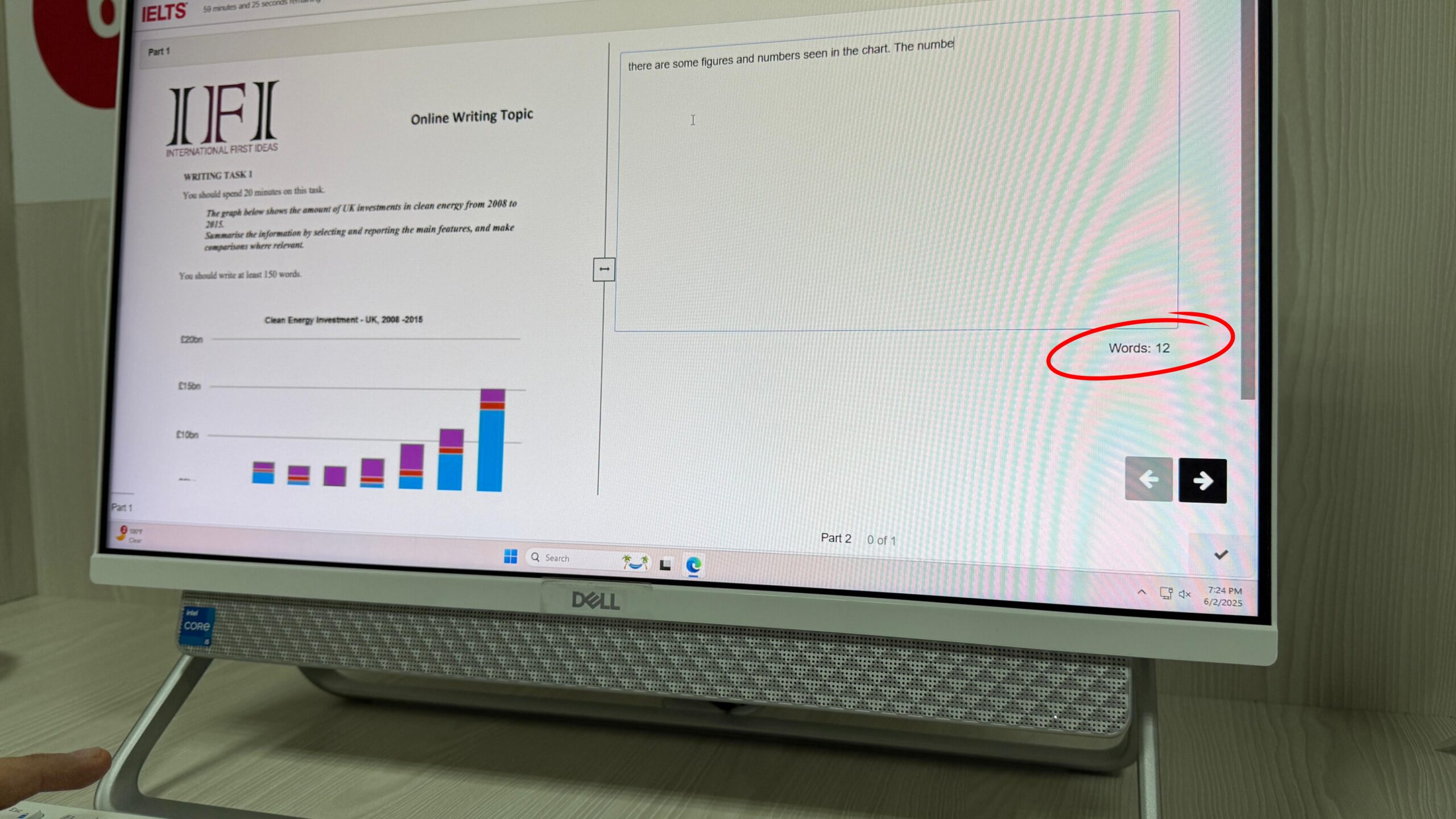Currently Empty: ر.ق 0,00
Essential IELTS Information
Should you take the IELTS on Computer or IELTS on Paper?

Should I take the IELTS on Computer or the IELTS on Paper?
Take a Listen!
Reading Time: 5 – 6 Minutes
Whether you should take the IELTS on Computer depends on your preferences and comfort level with technology. Here are some factors to consider when deciding between the computer-based and paper-based IELTS test formats:
Computer Literacy

Computer literacy refers to the ability to use computers and related technology efficiently, ranging from basic skills like using a keyboard and mouse to more advanced skills such as navigating software applications and using the internet. For IELTS on computer candidates, having a certain level of computer literacy is essential for several reasons:
- Test Format: The IELTS on computer test is entirely computer-based, which means candidates must be comfortable using a computer to complete the test. This includes typing answers, navigating between questions, and using on-screen tools for tasks like highlighting.
- Time Management: Computer literacy can help candidates manage their time more effectively during the test. Familiarity with typing, scrolling, and various computer functions enables test-takers to work efficiently and avoid wasting precious time on technical difficulties.
- Accuracy: A strong grasp of computer skills can enhance accuracy in the test, particularly in the Writing and Listening sections. Typing skills can help candidates provide legible and well-structured responses in the Writing section.
- Reducing Anxiety: Feeling comfortable with computers can alleviate anxiety on test day. Candidates at ease with the digital format can focus on showcasing their English language skills rather than worrying about technical issues or adapting to an unfamiliar environment.
If you are comfortable typing on a computer and navigating digital interfaces, the IELTS on computer test may be a good choice for you. However, if you prefer handwriting or struggle with typing, the IELTS on Paper test may be more suitable.
Note-taking and Highlighting
Note-taking
Highlighting
Both test formats allow for note-taking and highlighting, but the process differs. In the computer-based test, you’ll use digital tools, while in the paper-based test, you’ll use traditional methods. Consider which approach you are more comfortable with.
Reading
Some people find it easier to read on paper, while others prefer digital screens. Assess your reading preferences to determine which format suits you best. Here are some reasons why some people might prefer one over the other:
Paper Preference
- Tactile Experience: Some readers enjoy the physical sensation of holding a book or printed material, as well as the act of turning pages.
- Less Eye Strain: Paper can be easier on the eyes, as it does not emit blue light or glare that can cause eye fatigue, especially during extended periods of reading.
- Focus: Reading on paper can lead to greater focus and better comprehension for some people, as there are fewer distractions compared to a digital screen.
Digital Screen Preference
- Convenience: Digital screens offer the convenience of not having to turn pages manually, which is something that could take a bit more time.
- Accessibility: Digital materials often provide adjustable font sizes, making them more accessible to readers with visual impairments.
Listening

The computer-based test allows you to adjust the volume via a headset. In the IELTS on Paper test, audio is played through speakers in the room. Determine which listening environment you find more comfortable and conducive to focus.
Wanna know something great? At IFI, the listening test for both IELTS on Paper and IELTS on Computer is heard through noise-cancelling headphones.
Writing

The computer-based test offers a built-in word count feature and allows for easy editing. However, if you’re more comfortable with handwriting and prefer a physical paper for writing tasks, the paper-based test may be a better option. You may want to consider these factors too:
- Speed: Typing is generally faster than handwriting, allowing candidates to produce more content within the given time. This can be particularly beneficial in the IELTS Writing section, where task completion and word count play a role in the assessment.
- Editing: Typing makes it easier to edit and make changes to the text. Candidates can quickly delete, insert, or rearrange sentences without the need for messy crossed-out text or arrows, resulting in a cleaner final response.
- Legibility: Typed text is often easier to read compared to handwriting. By providing a clear, legible response, candidates ensure that examiners can understand their ideas without difficulty.
Wanna know something great? The computer lab at the IFI IELTS test centre is equipped with touch-screen computers and noiseless keyboards to help you feel as comfortable and focused as possible during the test.
Test Availability
Consider the availability of both test formats: IELTS on Computer and IELTS on Paper. At the IFI IELTS test centre, we understand the importance of flexibility and convenience for our test-takers. That’s why we offer the IELTS on computer test six days a week, from Sunday to Thursday, and on Saturdays.
Wanna know something great? IFI also offers evening IELTS test sessions on Computer on Mondays, Tuesdays, and Wednesdays for extra flexibility and scheduling.
By providing multiple testing sessions throughout the week, we aim to accommodate our candidates’ varied schedules and preferences, ensuring that they can find a suitable date and time to take the test.
In conclusion
Ultimately, there is no right or wrong choice between the two test formats. It’s essential to weigh the pros and cons of each format based on your unique strengths, preferences, and circumstances before deciding which IELTS test is best for you.
Whatever your choice is, we at IFI are here 24/7 to assist you throughout your IELTS test experience.



